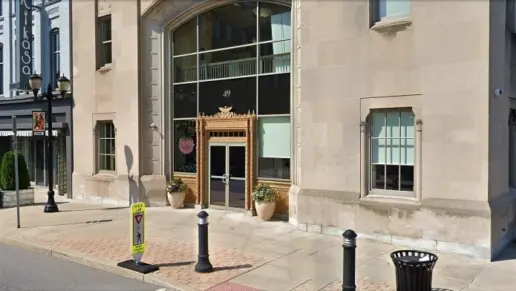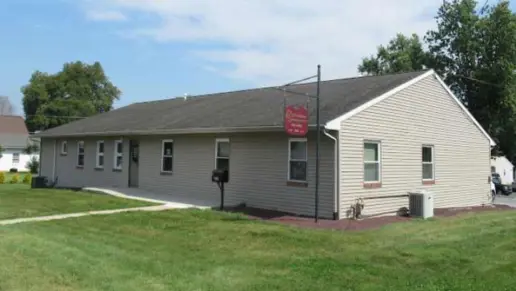About Pyramid Healthcare Pittsburgh Detox and Residential Treatment Center
Pyramid Healthcare’s Detox and Inpatient Treatment Center is in Pittsburgh, Pennsylvania. It provides drug rehab services and care for co-occurring mental health conditions to adults through its progressive and comprehensive programs. These programs include medical detox and residential treatment. Each is offered separately for men and women.
The medical detox program is offered per ASAM Level 3.7 and includes counseling services. Those enrolled should expect medical supervision to help with withdrawal symptoms and cravings. In addition, since there is no one-size-fits-all approach, this rehab center provides personalized detox treatment plans and no restrictive timeline. Patients will have as long as they need to detox before transitioning to inpatient or residential treatment.
Those enrolled in this addiction treatment center residential treatment program should expect to live on-site for 30 to 90 days, depending on recovery needs. This program provides scheduled activities like trauma-informed yoga, medical care, individual and group therapy, and 24-hour supervision. Family programming, legal assistance, life skill training, and dual diagnosis treatment are also available.
They accept state and county funding, medical assistance, and many commercial insurances like Com Psych, Aetna, Devon Health Services, Health America, Optum, UPMC, United Healthcare, Cigna, Geisinger, and more. To confirm you have coverage or if out-of-network benefits are necessary, it’s best to speak with your insurer and the rehab. They can advise you on how your treatment will be paid.
Latest Reviews
Rehab Score
Gallery
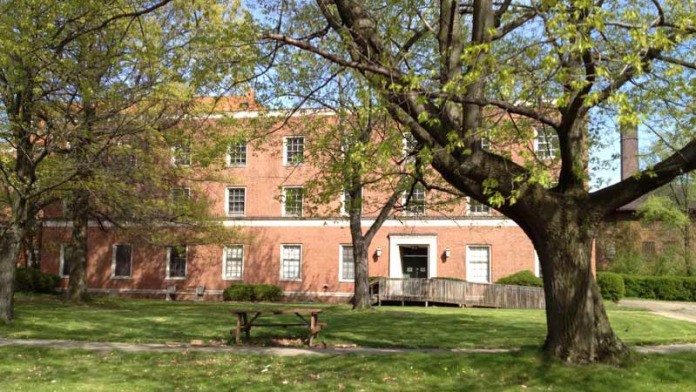
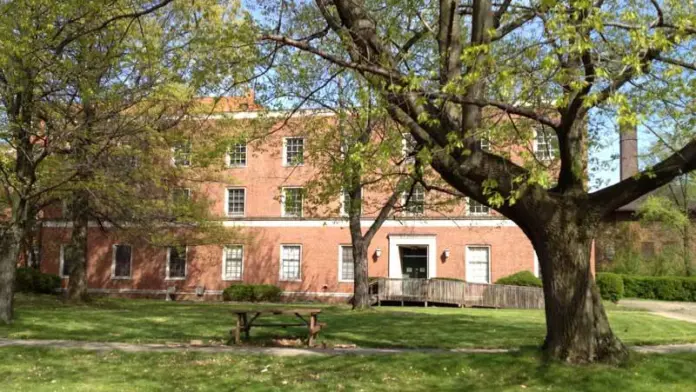

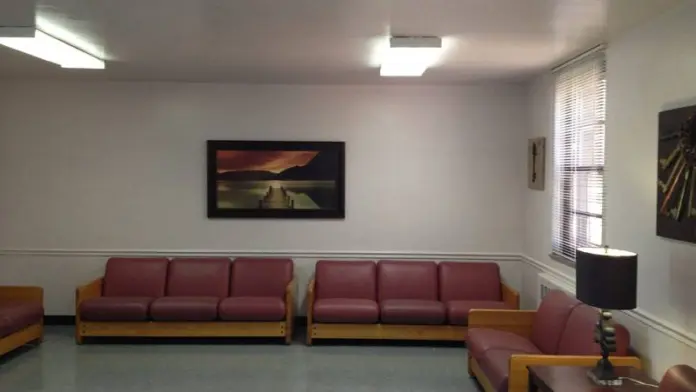
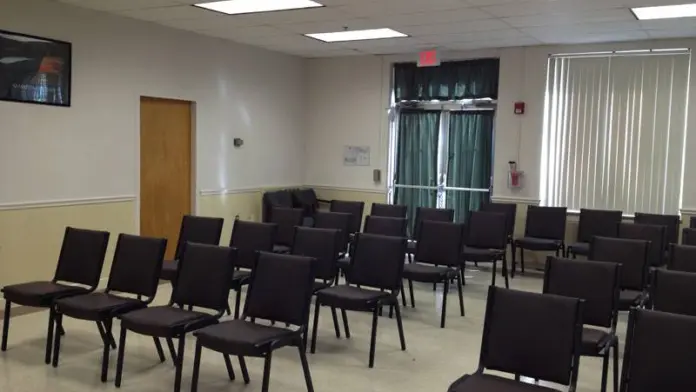

Location
Accepted Insurance





Other Forms of Payment
Medicaid is a state based program that helps lower-income individuals and families pay for healthcare. Medicaid covers addiction treatment so those enrolled can use their coverage to pay for rehab. When a program accepts Medicaid the client often pays very little or nothing out of their own pocket.
Private insurance refers to any kind of healthcare coverage that isn't from the state or federal government. This includes individual and family plans offered by an employer or purchased from the Insurance Marketplace. Every plan will have different requirements and out of pocket costs so be sure to get the full details before you start treatment.
Self-pay involves paying for treatment out of your own pocket. You can use savings or credit, get a personal loan, or receive help from family and friends to fund your treatment. If you don't have insurance or your insurance plan doesn't cover a specific program, self-pay can help ensure you still get the care you need.
Financial aid can take many forms. Centers may have grants or scholarships available to clients who meet eligibility requirements. Programs that receive SAMHSA grants may have financial aid available for those who need treatment as well. Grants and scholarships can help you pai for treatment without having to repay.
Military members, veterans, and eligible dependents have access to specific insurance programs that help them get the care they need. TRICARE and VA insurance can help you access low cost or no cost addiction and mental health treatment. Programs that accept military insurance often have targeted treatment focused on the unique challenges military members, veterans, and their families face.
Addiction Treatments
Levels of Care
Treatments
The goal of treatment for alcoholism is abstinence. Those with poor social support, poor motivation, or psychiatric disorders tend to relapse within a few years of treatment. For these people, success is measured by longer periods of abstinence, reduced use of alcohol, better health, and improved social functioning. Recovery and Maintenance are usually based on 12 step programs and AA meetings.
Drug rehab in Pennsylvania is devoted to the treatment of addiction. Levels of care, treatment methods, and settings differ, but the aim of each program is to end drug dependency and empower participants to achieve long-term recovery.
Pyramid Healthcare provides dual diagnosis treatment, which addresses symptoms of both mental health disorders and addiction, for adults at select facilities. By combining the most effective aspects of mental health care and substance abuse into a continuum, the chances of a client successfully maintaining sustained sobriety increase greatly. Many Pyramid Healthcare clinicians and counselors are certified in the treatment of co-occurring mental health disorders and are able to effectively and expertly apply the tenets of dual diagnosis treatment. Clients receiving dual diagnosis treatment will receive psychiatric care and proper medication to address their diagnosis while simultaneously participating in addiction recovery programs.
Opioid rehabs specialize in supporting those recovering from opioid addiction. They treat those suffering from addiction to illegal opioids like heroin, as well as prescription drugs like oxycodone. These centers typically combine both physical as well as mental and emotional support to help stop addiction. Physical support often includes medical detox and subsequent medical support (including medication), and mental support includes in-depth therapy to address the underlying causes of addiction.
Substance rehabs focus on helping individuals recover from substance abuse, including alcohol and drug addiction (both illegal and prescription drugs). They often include the opportunity to engage in both individual as well as group therapy.
Programs


Clinical Services
Experiential therapy is a form of therapy in which clients are encouraged to surface and work through subconscious issues by engaging in real-time experiences. Experiential therapy departs from traditional talk therapy by involving the body, and having clients engage in activities, movements, and physical and emotional expression. This can involve role-play or using props (which can include other people). Experiential therapy can help people process trauma, memories, and emotion quickly, deeply, and in a lasting fashion, leading to substantial and impactful healing.
Family involvement can be critical to a client’s success during and after treatment. Pyramid Healthcare has developed a family program designed to educate the client’s family members about the disease of addiction. This program helps both the individual in specialty treatment and their family learn skills and develop behaviors effective in minimizing the negative impact of the addiction on the familial relationship. Their family program can also open lines of communication between the client and their family members. Pyramid Healthcare counselors can provide family counseling if it is requested by the client.
Group therapy is any therapeutic work that happens in a group (not one-on-one). There are a number of different group therapy modalities, including support groups, experiential therapy, psycho-education, and more. Group therapy involves treatment as well as processing interaction between group members.
In individual therapy, a patient meets one-on-one with a trained psychologist or counselor. Therapy is a pivotal part of effective substance abuse treatment, as it often covers root causes of addiction, including challenges faced by the patient in their social, family, and work/school life.
Pyramid Healthcare specialists and clinicians collaborate in an effort to provide the client with guidance and instruction on topics such as financial management, job preparation, communication skills/social etiquette, volunteerism, and the appropriate utilization of community resources with the goal of functioning productively in a society free of drug and/or alcohol dependence.
Trauma therapy addresses traumatic incidents from a client's past that are likely affecting their present-day experience. Trauma is often one of the primary triggers and potential causes of addiction, and can stem from child sexual abuse, domestic violence, having a parent with a mental illness, losing one or both parents at a young age, teenage or adult sexual assault, or any number of other factors. The purpose of trauma therapy is to allow a patient to process trauma and move through and past it, with the help of trained and compassionate mental health professionals.
Amenities
-
Residential Setting
Staff & Accreditations
Staff

Chief Compliance Officer
Accreditations

The Commission on Accreditation of Rehabilitation Facilities (CARF) is a non-profit organization that specifically accredits rehab organizations. Founded in 1966, CARF's, mission is to help service providers like rehab facilities maintain high standards of care.
CARF Accreditation: Yes
Contact Information
306 Penn Avenue
Pittsburgh PA, 15221








